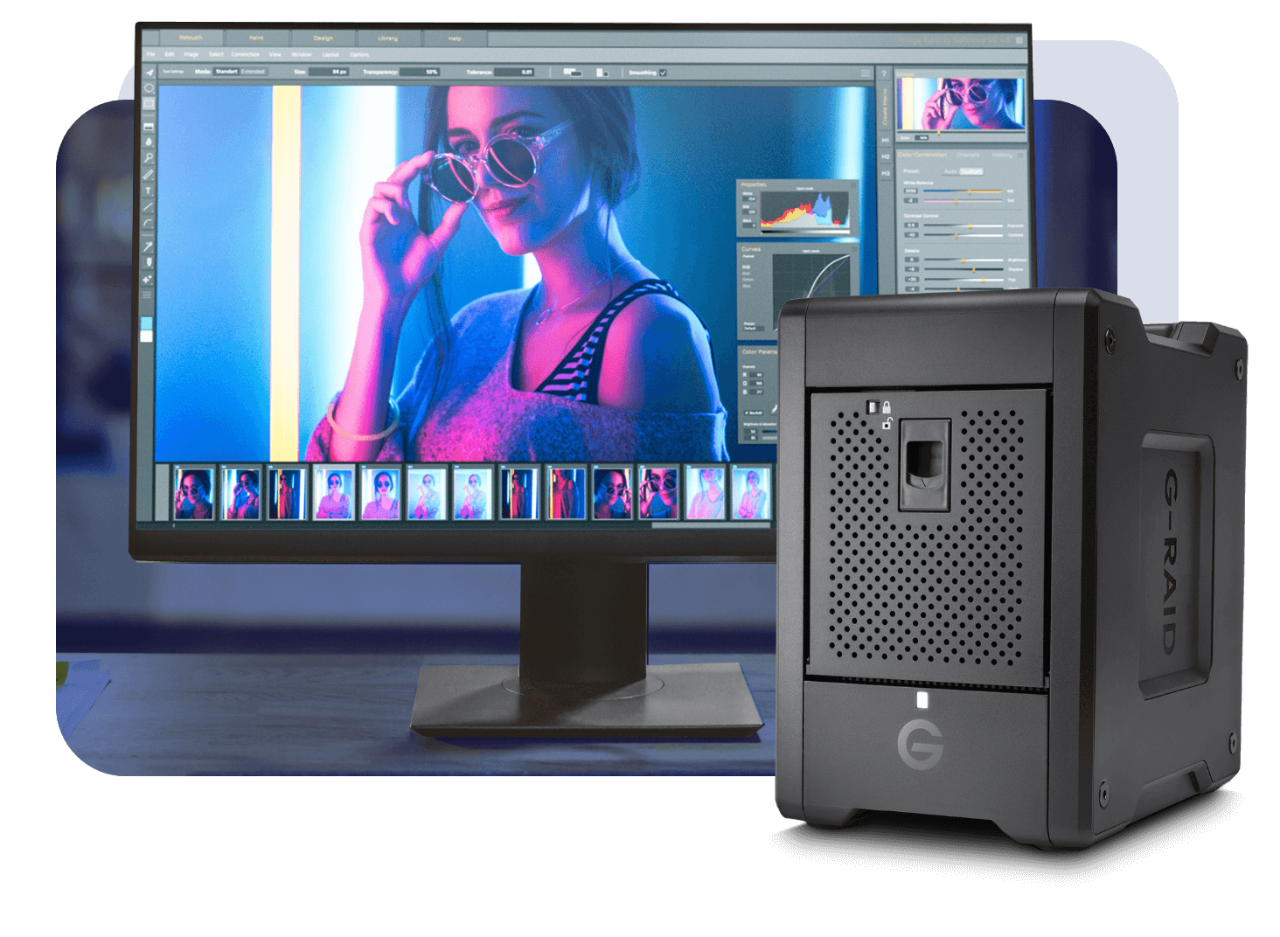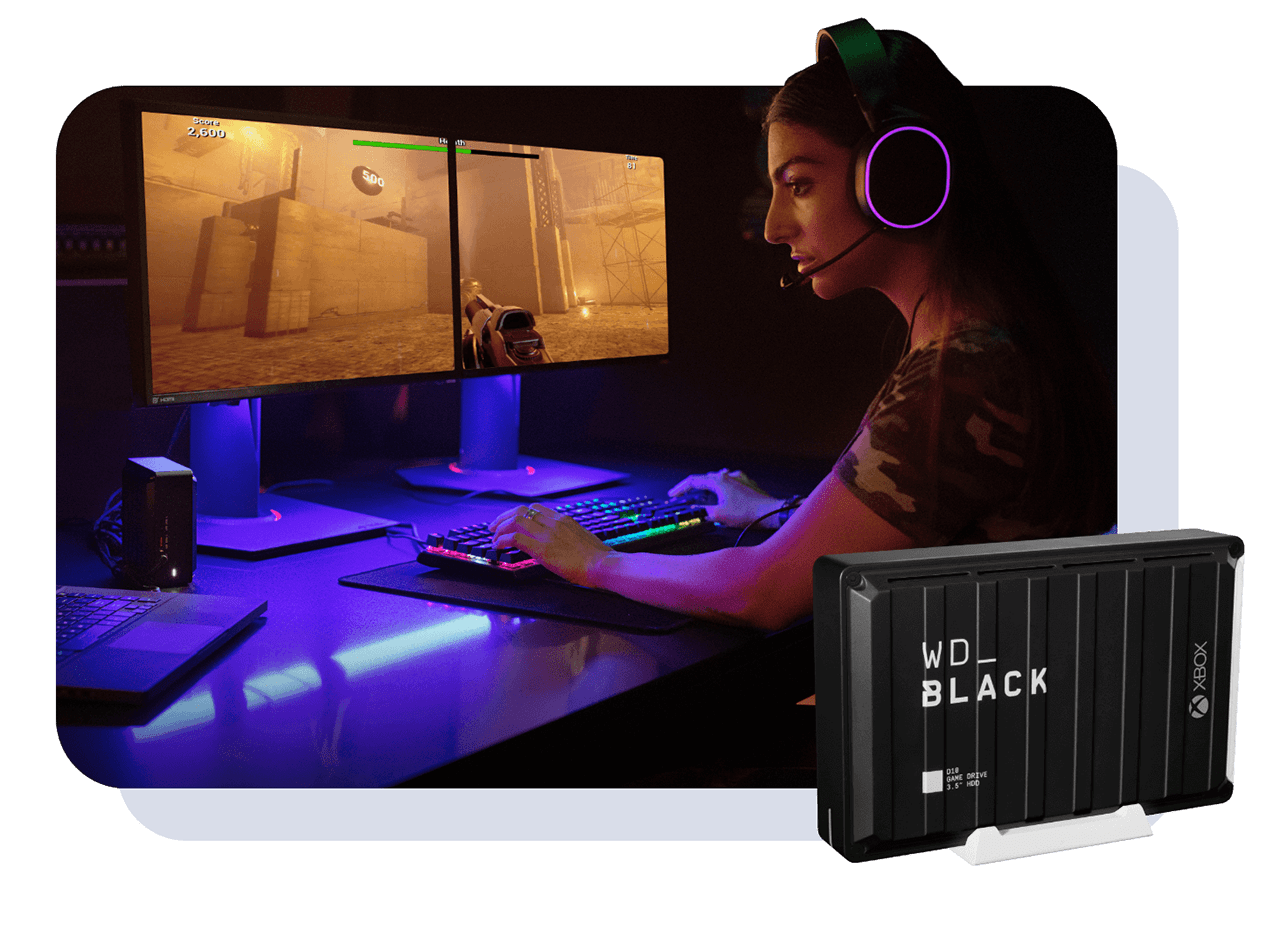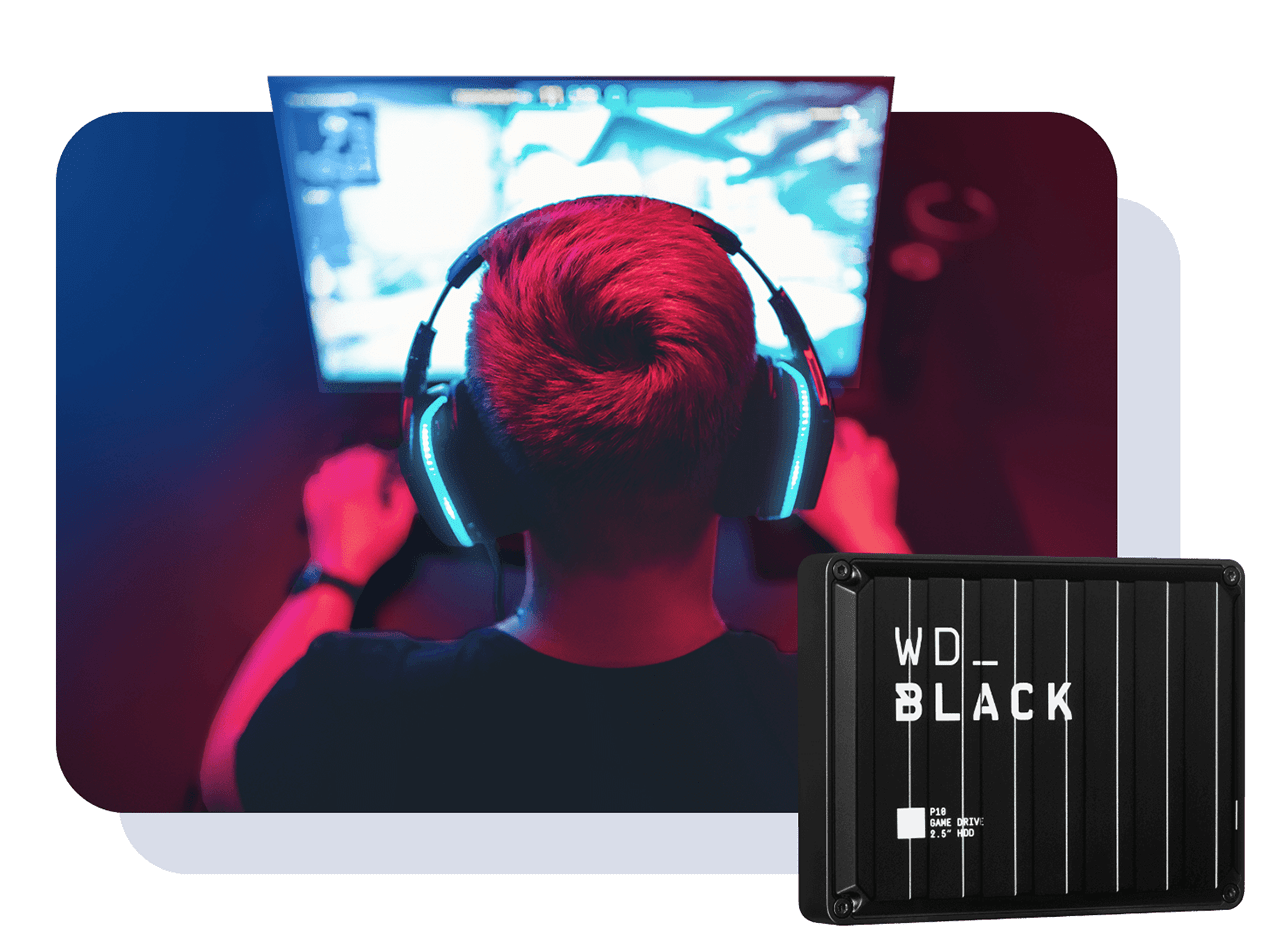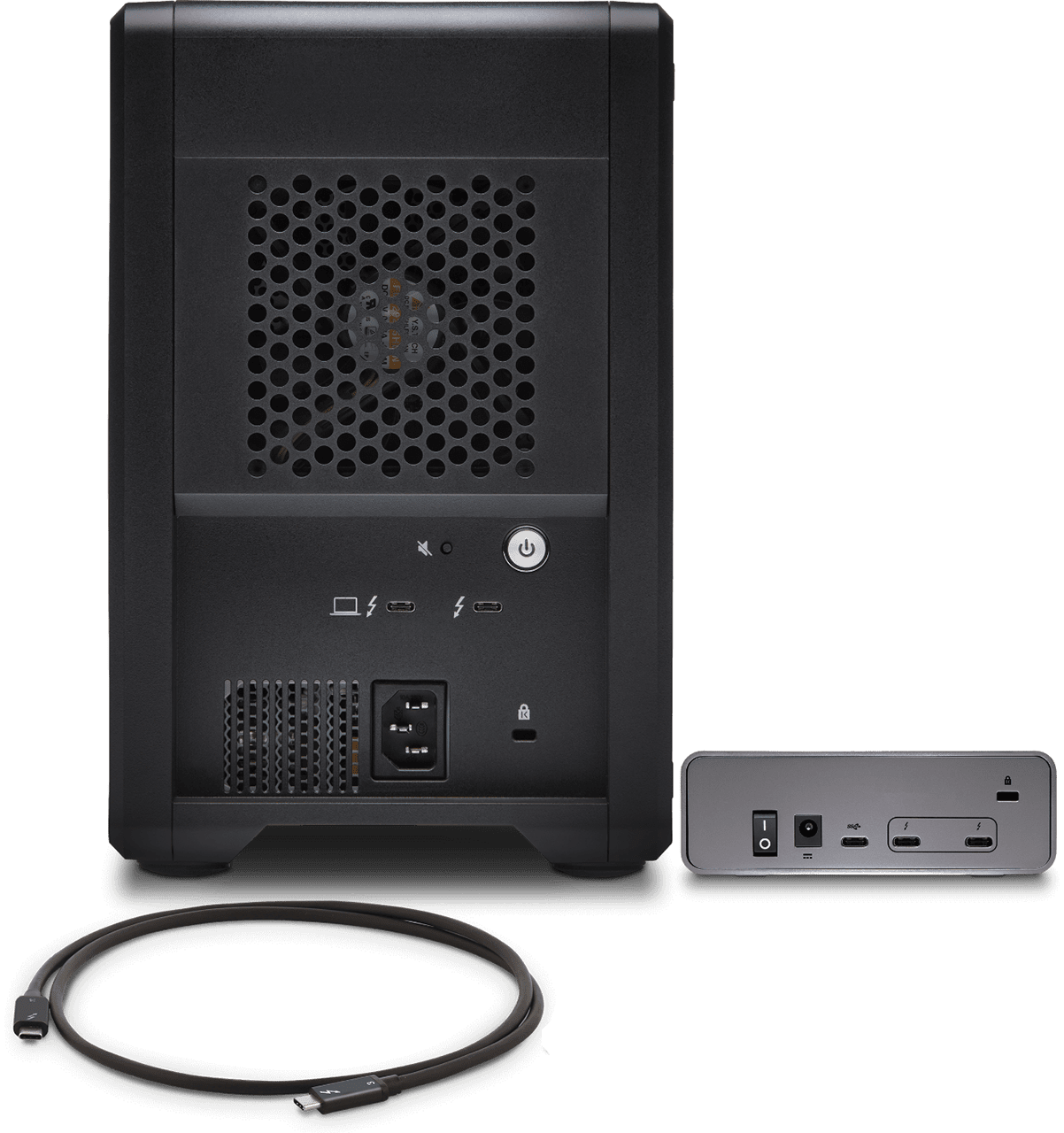Thunderbolt™ vs. USB-C™
Compare how different cable, connector, and port protocols can power your workflow, and find compatible storage devices to help.

What’s Thunderbolt? What’s USB?
Thunderbolt and USB protocol technology transfer data, display video, play back audio, and charge devices. What’s different between them is how much of each they support, and what kind of accessories they let you connect while doing it.

What’s USB-C?
USB-C is the shape of the connector at the end of a cable, as well as the kind of port you’ll connect that cable to. However, it’s not a specific protocol itself. Thunderbolt 4, Thunderbolt 3, USB4, and USB 3.2 protocols all use USB Type C cables and ports. Only some cables and ports are certified for Thunderbolt.
Advantages of Thunderbolt
Thunderbolt is generally the fastest, most versatile technology on the market capable of reaching top speeds, connecting multiple high-res monitors at once, daisy-chaining storage devices, and more — all through a single port.
- ✔Best for intensive, creative workflows
- ✔Best for daisy-chaining
- ✔Best for peripherals
- ✔Best for faster charging
Advantages of USB
USB — or Universal Serial Bus — is the most common protocol for transferring data to and from storage devices, connecting accessories such as your mouse and keyboard, and keeping your day-to-day tech charged.
- ✔Best for everyday tasks
- ✔Best for quick, easy setup
- ✔Best for universal compatibility
- ✔Best for affordability
Still have questions? Head to our FAQs.
Compare Thunderbolt & USB Generations
Master connected workflows by learning more about USB vs. Thunderbolt.
| Thunderbolt 41 | Thunderbolt 3 | USB4 | USB 3.2 | |
|---|---|---|---|---|
| Data Transfer | 40 Gbps | 40 Gbps | 20 Gbps/40 Gbps | 5-20 Gbps |
| Video | Two 4K Monitors One 8K Monitor | Two 4K Monitors One 5K Monitor | Two 4K Monitors One 8K Monitor | One 4K Monitor |
| Power/Charging | Cable up to 100W Port minimum 15W | Cable up to 100W Port minimum 15W | Cable up to 100W Port minimum 7.5W | Cable up to 100W Port minimum 4.5W |
| Daisy-Chaining | Yes (up to 6 devices) | Yes (up to 6 devices) | No | No |
| Passive Cable Length2 | 2m | 0.8m | 0.8m | 1m |
| Mandatory Certification | Yes | Yes | No | No |
| Backwards Compatibility | Full | ≥1m = 480Mbps (USB) | Full | Full |
| Connector | USB-C | USB-C | USB-C | USB-C, USB-A |
Using Thunderbolt 4 vs. Thunderbolt 3 for Storage
Is there a difference between Thunderbolt 4 and Thunderbolt 3 for data storage?
No, both Thunderbolt 4 and Thunderbolt 3 are great options for your data storage workflow. Each generation supports speeds of up to 40 Gbps, so they’re equally fast.
Will I get the same data storage performance with Thunderbolt 3 vs. Thunderbolt 4?
Yes, using Thunderbolt 3 for data transfer to and from your storage devices will not put you at any disadvantage compared to Thunderbolt 4.
Why would I use Thunderbolt 4 in my data storage workflow?
Thunderbolt 4 optimizes the docking experience for peripherals and allows you to support additional, higher-res video displays. If that’s a priority for you, Thunderbolt 4 is a great option — and Thunderbolt 3 devices will be fully compatible with your Thunderbolt 4 system, so long as they’re downstream.
For Casual Users


For Creative Professionals


For Gamers



Frequently Asked Questions
You can use USB devices with Thunderbolt cables — they’ll just default to USB’s standards rather than Thunderbolt’s. However, to get the most out of Thunderbolt devices, you’ll need both a Thunderbolt-certified system and cables. Otherwise, you may not get full — or any — functionality or performance.
Disclosures
1. Most USB4 devices and cables on the market today support a max of 20 Gbps and not 40 Gbps.
2. Active cable length may be longer.
3. The number of games will vary based on file size, formatting, other programs, and factors.